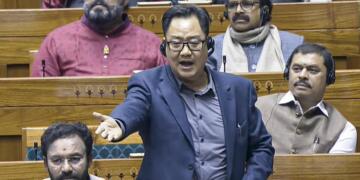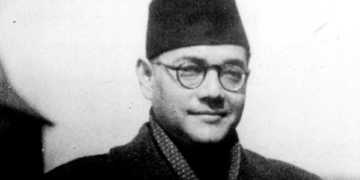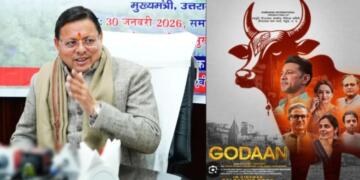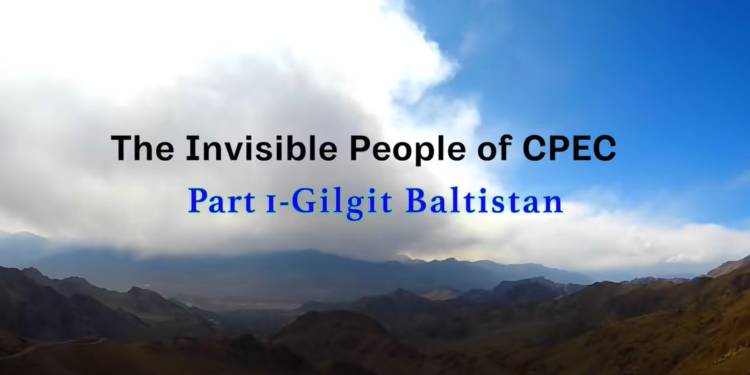India has constantly raised concerns over the China Pakistan Economic Corridor (CPEC) as the corridor is constructed in India’s integral territories like Gilgit-Baltistan which has been illegally occupied by Pakistan. While CPEC is fast turning out to be a massive failure for China, the plight of the people living in the region has largely gone unnoticed as both Pakistan and China indulge in blatant human rights violations under the garb of CPEC.
A documentary on CPEC titled ‘The Invisible People of CPEC’ by Siddharth Acharya sheds lights on the plight of people living around the corridor as the locals face an existential crisis as China is also bringing about a demographic change in the region.
The story of how Gilgit-Baltistan fell in the lap of Pakistan is another story in itself as it was a classic case of Jawaharlal Nehru’s blunder. The British always regarded the area off geostrategic importance as it connected the British Empire to both China and Russia and hence, in 1935, Gilgit was leased by the British from the Maharaja of Jammu and Kashmir. However, on August 1, 1947, the British terminated the lease and handed over the region back to the Maharaja and made Brigadier Ghansar Singh the Governor. However, Gilgit troops intervened to ensure that the area was acceded to Pakistan.
After Gilgit was captured in November 1947 by British Major Brown, another operation was launched to capture Ladakh and Skardu, Lt Col Sher Jung Thapa who was the commander of Leh and Skardu garrisons was sent to Skardu and valiantly defended it for six months in absence of any logistical support from the Indian government.
The biggest blunder committed by Nehru was that he decided to send the arms and ammunition to the Army protecting Skardu by air instead of by road. This led to the Balti tribals getting hold of 0.303 rifles and the Maharaja’s Dogra Army was left with nothing. The Balti tribals who were fighting with only swords was suddenly armed with rifles and hence, managed to defeat the Maharaja’s army.
India is still paying for Nehru’s follies and blunders as in 1947, as the Indian Army had reached close to Skardu, Shiekh Abdullah and Nehru conspired and reached a conclusion that they don’t need non-Kashmiri speaking people in the state of Jammu and Kashmir. Hence, they went to the United Nations and appealed for a ceasefire, leaving Gilgit-Baltistan under the forced occupation of Pakistan.
“China is attempting to build the One Belt One Road which passed through the Karakoram highway, which in turn passes through Gilgit Baltistan. Now, Gilgit Baltistan being a part of India, illegally occupied by Pakistan, results in a conflict of interest. Pakistan has been exploiting the region and its resources and is also changing the demographics in the area,” said Major General Dhruv Katoch, Director India Foundation. The people in this region are extremely dissatisfied with the Pakistani occupation and the success or failure of the CPEC will be decided by the locals and their co-operation.
China is trying to capture Ladakh and in order to promote its imperialist policies, they are giving free education to the poor Balti children in the name of camps. The main motive behind these camps is to promote insurgency and make militants out of the poor students.
CPEC begins from the region of Xinjiang which has been in the news since the past couple of years as the Chinese Communist Party commits unspeakable atrocities against the Uighur Muslims in the region. From organ harvesting to mass detention and re-education camps to infiltrating the region with Han-Chinese people, the CCP has done it all to eradicate the Uighur Muslims.
“Chinese government is cheating the world and Chinese government is continuing the construction and expansion of camp and continues to send people to the camp,” said Dolkun Isa, President of the World Uyghur Congress.
Earlier, a lot of trade took place from Xinjiang to India and especially Kashmir, and in fact, there are few hundred families of Uighurs settled in Srinagar.
When Imran Khan was the opposition leader, he had vociferously opposed the construction of CPEC however, after becoming the Prime Minister, Khan has requested for the expedition of the CEPC projects. Such is the Chinese influence in Pakistan that the former had loaned $4 billion in the fiscal year ending in 2018.
“OBOR is a very naive concept and it is even more naive in the way it is going about in its execution. The logic put forward by the Chinese government which is that CPEC is for pure economic benefits is very basic and it is not something that is easily accepted by the world because you could clearly see through it that it is not on economic rationale but more of geopolitical rationale that is driving this initiative,” said Shaurya Doval, a noted Public Policy Thinker.
The so-called protectors of Islam, Imran Khan and Turkey President Erdogan have ignored China’s treatment of the Uighur Muslims and have supported China’s atrocities.
“Kohala Hydel Power Project plant has been built by the assistance of China. Similarly, Neelam Jhelum hydroelectric project and Mirpur Industrial Corridor are also under the process. This project doesn’t concern us as it is built on disputed territory and has conflicts attached to it,” said Ishaq Sharif, Political Activist from POJK.
“CPEC is a mere eyewash…. This is not going to create job opportunities for us and bring any improvement,” said a group of residents from POJK.
Siddharth Acharya’s documentary reveals the true picture of Gilgit-Baltistan and the atrocities committed on the people of POJK and China.





























